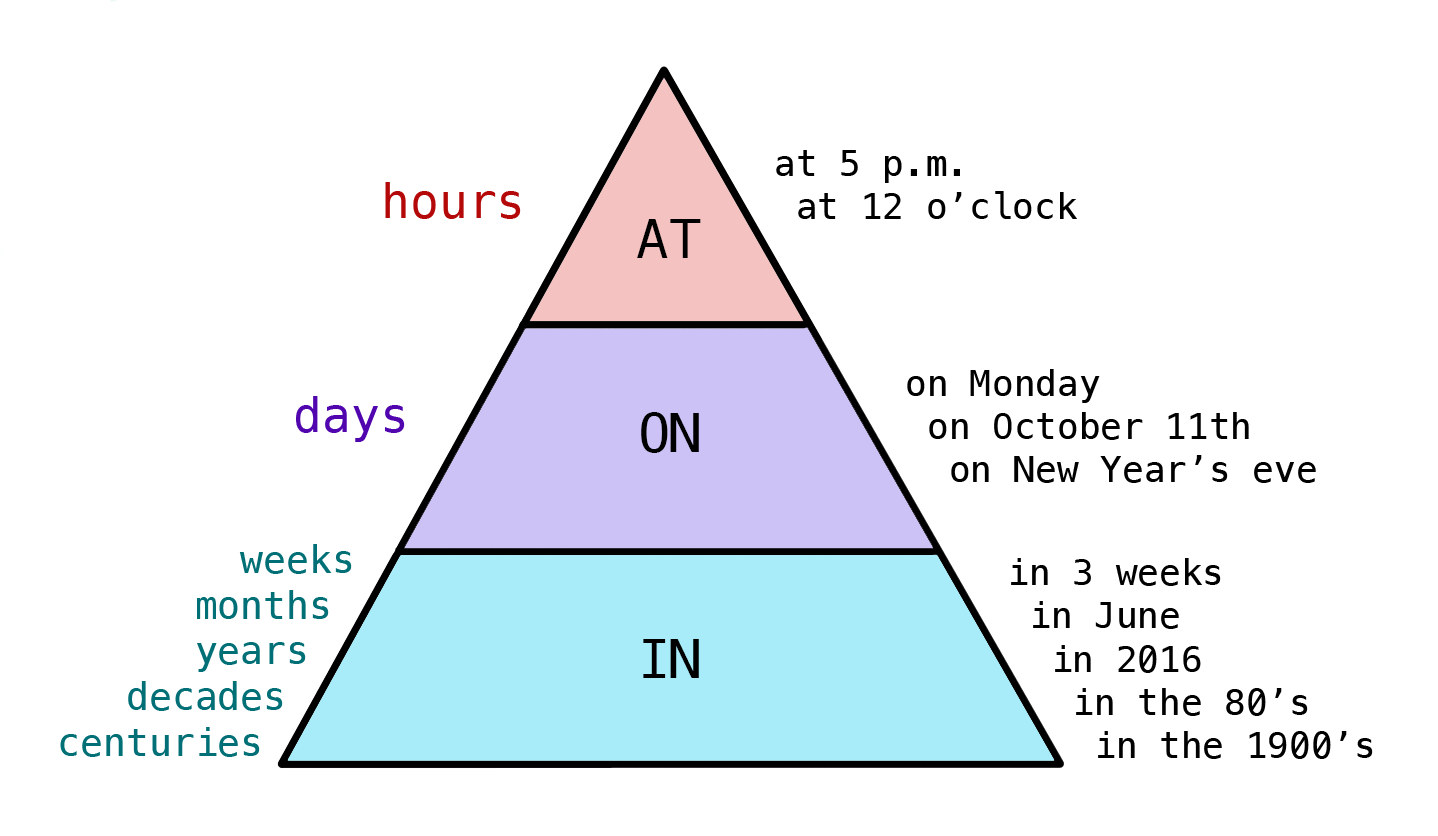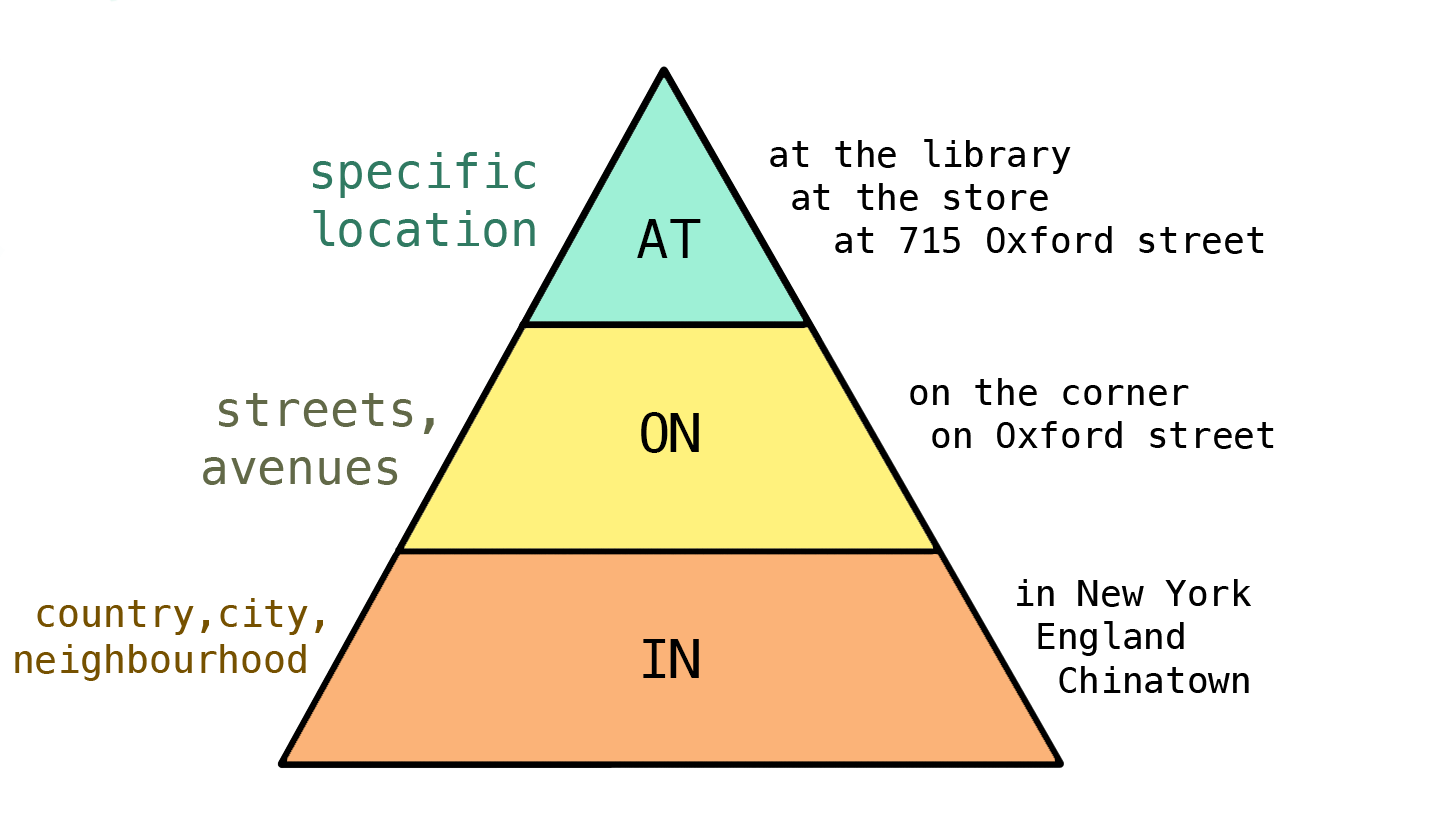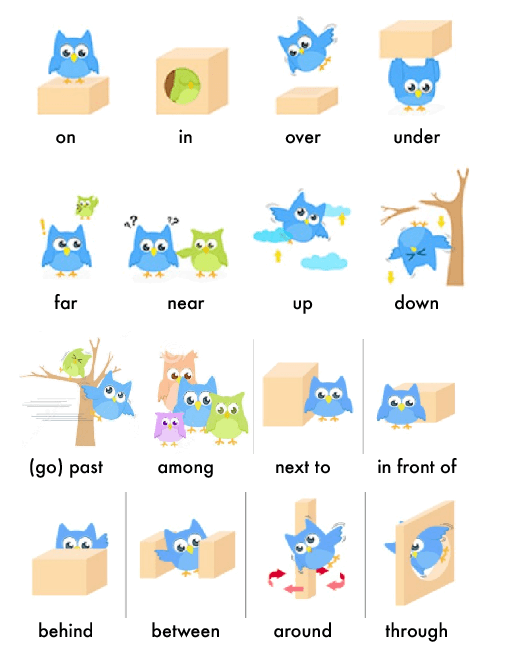IELTS grammar. Lesson 9: Prepositions (part 1).
One of the most common source of mistakes in IELTS Writing are prepositions. Prepositions are short words (on, in, to) that usually stand before nouns or gerund verbs. For example: on Monday, travel by bus, at the end of the day.
This lesson will cover the basic rules of prepositions usage and will teach you how to use the prepositions of time, prepositions of place and other prepositions.
To complete this lesson, read the theory in green box and do the online exercises below.

A preposition is a word that shows the relationship between a word in the sentence and the word that is the object of the preposition. Examples:
- I will arrive on Monday.
- She'll be here between 13:00 and 14:00.
Prepositions can be divided into three groups: prepositions of time, place and other prepositions.
1. Prepositions of time: on, in, at, since, from, ago, before etc.
This diagram explains how to use prepositions on, in, at for describing time:

Examples:
- This shop works since 1970s.
- I've been working here for 5 years.
- We'll meet on April 7th.
2. Prepositions of place: in, at, on, beside, under, below, above etc.
This diagram explains how to use prepositions on, in, at for describing locations:

This diagram explains how to use prepositions of place:

Examples:
- Your bag is in the living room.
- Meet me at the bus station.
3. Other prepositions: by, about, off, with, without, as, for, per etc.
Examples:
- We were talking about him.
- We travelled by car.
- This car's speed is 180 kilometers per hour!
- I took off my coat.
- John can't live without Susan - he loves her!
- I don't want to dinner as I have just eaten a lunch.
- Jack wanted to learn English. He started studying hard for that purpose.
You should keep in mind that a lot of prepositions do not have strict rules of usage. The only guaranteed way to learn them is to use the dictionary or the Internet when you're in doubt.
